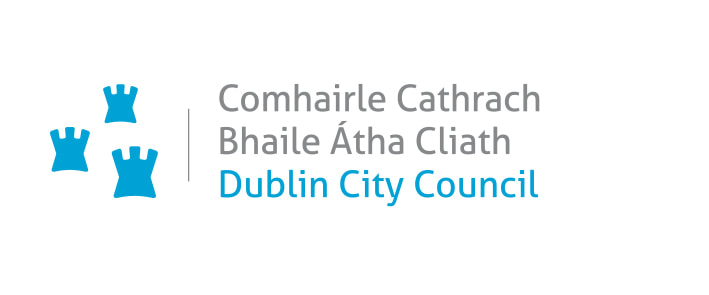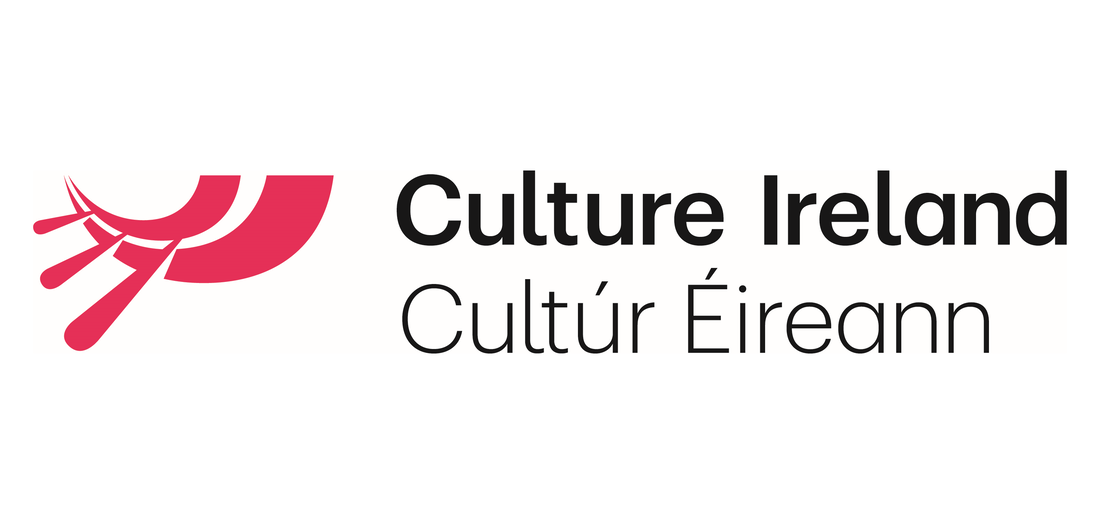|
Fishamble is honoured to share this essay by Patrick Lonergan, Professor of Drama and Theatre Studies at NUI Galway & Burns Visiting Scholar in Irish Studies, Spring 2019, Boston College. One of the most memorable experiences I’ve had in the theatre in recent years happened during the summer of 2013, when I brought a group of about 30 people to see Fishamble’s production of Guaranteed! by Colin Murphy at the Mermaid Arts Centre in Bray.
When planning that visit, I’d been a little apprehensive. Guaranteed! was not going to be a full production, we’d been told, but a script-in-hand performance – so I’d worried that it might be more like a lecture than a play. Then there was the subject matter: the bail-out of the Irish banks by the Fianna Fail-led government in 2008. This was an important topic, to be sure, but was it the kind of story that would make for good drama? But upon our arrival at the venue, it was immediately obvious that those concerns had been misplaced. We often read reviews that describe the atmosphere in a theatre as “electric” – but even in the foyer before the play began, it was clear that such a description was (for once) both appropriate and accurate: everyone present seemed energized, alert and ready to listen – and also ready to express themselves about what had been done to their country, in a post-show discussion that was anticipated eagerly. As the performance began, that mood intensified. Yes, the actors were holding their scripts – but they’d obviously rehearsed the play in detail, and had fully worked out their timing and movement (under the direction of Conall Morrison). The audience laughed and groaned in the way you might hear at a summer production of a John B Keane melodrama (which the story of the bail-out all too often resembled), but there was also a feeling in the air that we were carefully gathering evidence, trying to understand the banking guarantee from a human as well as political perspective. There was also a huge sense of (to use another electrical metaphor) currency: that what we were watching was a live experience not just in the sense that it was being performed before us by actors, but also that it was an attempt to understand the Ireland we were living in right now. I came away with a much stronger awareness of how Irish theatre is inherently political - but also with a greater understanding of how Irish politics is inherently theatrical. As Fishamble has been celebrating its thirtieth anniversary this year, I’ve often found myself thinking back to that night at the Mermaid, which feels like a strong encapsulation of the importance of that company and of their place in the Irish theatrical ecosystem. Guaranteed! started life as a short piece written in response to Fishamble’s call-out in 2011 for “tiny plays for Ireland” – works of less than three minutes that were intended to point ways forward for a nation that, in the wake of the bail-out, found itself uncertain about the future. At a depressing time in Irish history, that appeal for new plays was a heartening example of Fishamble’s faith in the playwright, of their belief that there are people all across this island who have something to say on both page and stage. That faith was triumphantly validated when an amazing number of submissions materialized – 1700 in all, from every county in Ireland. The resulting production of 25 of those plays (one of them a shorter version of Murphy’s Guaranteed) appeared at Project Arts Centre in March 2012 – fittingly, just in time for St Patrick’s Day. Under the direction of Jim Culleton, the theatre space became a kind of citizens’ assembly, in which established playwrights, emerging authors, and people who’d never before had their work staged were all presented together on an equal footing. The tiny plays (which returned for a second edition in 2013) demonstrated Fishamble’s longstanding belief that plays can be ‘for Ireland’ in the broadest possible sense. The theatre, they have always shown, can be a space to disentangle matters of political or social urgency, especially when it comes to topics that the Dáil or the news media have been unable to address conclusively. This trait was evident in their earliest years as Pigsback (the company’s original name), when they produced Deirdre Hines’ Howling Moons, Silent Sons (1991), premiering a play that was several years ahead of its time in its exploration of the interplay between gender, the personal and the political in Northern Ireland. And it’s remained evident in the present, as we saw last year when they premiered Eva O’Connor’s Maz and Bricks, a drama that created space for us to think through debates about the repeal of the eighth amendment. In the years between Hines and O’Connor’s plays, we’ve seen work on a variety of similarly urgent topics. Jim O’Hanlon gave us one of the earliest plays about race and immigration in Ireland when The Buddhist of Castleknock appeared in 2002. Fourteen years later, Rosaleen McDonagh’s Mainstream showed us how much we in Ireland still have to learn about diversity and difference, in a drama that was unflinching in its presentation of the oppression faced by people with disabilities and members of the Travelling community. In 2005, Fishamble worked with Amnesty International to present a series of monologues called She Was Wearing…, the aim of which was to contribute to Amnesty’s Stop Violence Against Women campaign. And in 2012, shortly after Ireland was bailed out by the IMF, they premiered The Great Goat Bubble by Julian Gough, a work that was simultaneously hilarious and terrifying in its suggestion that the global financial system should be seen as a demented pyramid scheme. These (and many other) Fishamble plays spoke directly to their social and political moments – but they also transcended their specific times and places to succeed as carefully-wrought dramas first and foremost. Fishamble’s plays have also been ‘for Ireland’ in broadening our understanding of how our country could be represented on stage. For example, The Ash Fire - the 1992 play by Fishamble Literary Manager Gavin Kostick – was a drama about a Jewish family in Dublin. Its setting placed it snugly in the tradition of working-class urban plays like those of Sean O’Casey, but it also expanded our understanding of Irishness, reminding us of the importance of Ireland’s Jewish communities both historically and in the present. In later years, the company showed us a variety of other communities, taking us to the middle-class living room of Joseph O’Connor’s Red Roses and Petrol in 1995 and Jim O’Hanlon’s Pilgrims in the Park (2004); the Ballymun of Sean McLoughlin’s Noah and the Tower Flower (2007); and the contested coastal borderland of Abbie Spallen’s Strandline (2009). They’ve also repeatedly tackled the hardest questions faced by our society, as for instance when Deirdre Kinahan’s 2014 Spinning asked us to understand what goes through the mind of the men responsible for the spate of murder-suicides that had been happening in Ireland during the preceding years. More recently, in Rathmines Road (another Kinahan play), they placed us firmly in the mind of a woman who’s faced with the decision about whether to report to the police that she’d been raped many years before – in a production that demanded not only that we sympathize with the woman but also that we ask ourselves what we would do in the same situation. These are productions that refuse to let their audiences off the hook. There have also been many moments of joy or tenderness, of course, and especially of humour – memorably so in such plays as Michael Collins’ Tadhg Stray Wandered In, Monged by Gary Duggan and Rosalind Haslett’s Still, to give just three examples. And if Fishamble have been committed to the importance of the play, they have also been thoroughly committed to the idea of the playwright. They have an exceptional track record in the nurturing of new writers, and I’ve often thought that they don’t get enough credit for having produced the earliest plays of such major dramatists as Marina Carr, Mark O’Rowe and Stella Feehily. They’ve also played an instrumental role in supporting more established writers (it’s often been observed that getting a first or second play produced in Ireland is much easier than staging an eighth or ninth) – which would include their recent work with Deirdre Kinahan as well as with Sebastian Barry, whose On Blueberry Hill returns for a national tour in 2019. That concern with ensuring that playwriting can be seen as a career that lasts a lifetime is matched by their work with actors who want to perform in their own work. We’ve seen this in their collaboration with Irish Theatre Institute and Dublin Fringe on the “Show in a Bag” initiative, which has given us exciting new writing by people like Bryan Burroughs, Noni Stapleton, Emmet Kirwan and Sonya Kelly (among many others). But it’s also been evident in the stunning solo plays of Pat Kinevane: Forgotten, Silent, Underneath and (premiering just a few weeks ago) Before. This is an amazingly diverse range of writers and plays – and that diversity is all the more impressive when we consider that the majority of them were directed by one person, Jim Culleton. His impact on Irish writing over the last thirty years is literally second to none – and that’s before we consider the work he’s done in supporting Irish actors, designers and producers at all stages of their careers. And as Artistic Director he’s also been important in working with other directors, Morrison’s work on Guaranteed being one example – but his company has also provided opportunities for us to see work by such directors as Annabelle Comyn, Roisin McBrinn, Jo Mangan, David Horan, Mikel Murfi, and Louise Lowe. And here I’m led to think of another those memorable nights at the theatre that I’ve had with Fishamble: the 2007 premiere of Sebastian Barry’s Pride of Parnell Street. Again, I thought I knew what the play was going to be about before I saw it: another Barry play, another monologue play, another football play, another play about inner city Dublin – I was looking forward to it but definitely had a set of unconscious expectations that were based on things I’ve seen in the past. And again I was completely surprised. Under Culleton’s direction, Karl Shiels and Mary Murray gave performances that, even eleven years later, I can still remember as vividly as if I’d seen them last week. They were portraying a married couple whose lives had been torn apart by the man’s violence against the woman, set against the backdrop of Ireland’s elimination from the 1990 World Cup. What has stayed with me a decade later is the compassion of the directing and acting, which was unambiguous in its condemnation of the man’s violence, but which also refused to dehumanize him, opening up the possibility that we might forgive him, while ensuring we would never excuse him. Murray’s character was a woman who could acknowledge that she loved her husband, but she had also reached a point of loving herself enough to leave him, and to stay away. While Culleton’s direction has always been admired for its technical subtlety, this was a crystal-clear example of how humane his work always is. And that humanity reminds us of one final way in which Fishamble have been a theatre company for Ireland. At its best – whether it’s amateur or professional, devised or scripted, classic or contemporary – theatre in Ireland seeks to expand our imaginations, to push us beyond the limits of what we think of as being likely or possible, whether on stage or in life itself. But first as Pigsback and then as Fishamble, this company has also expanded our imagination of what we ourselves can be – and it’s for that reason that I’ve always found myself being surprised by them, shaken out of my expectations and assumptions. That’s been true for the countless people who never thought they could write a play but proved themselves wrong when they took a Fishamble course or sent a short play to them and had it staged. It’s been true for the theatre artists who’ve worked with the company on stage or via resources like their new play clinic. And, perhaps most importantly, it’s been true for the many audiences who have found in Fishamble a company that has always been willing to place their faith in us – making us believe again in our own capacity for compassion, curiosity and action.
1 Comment
|
3 Great Denmark Street
Dublin 1, Ireland
D01 NV63
[email protected]
+353 1 670 4018
@fishamble
Registered Charity
No. CHY 20103958.
Dublin 1, Ireland
D01 NV63
[email protected]
+353 1 670 4018
@fishamble
Registered Charity
No. CHY 20103958.

 RSS Feed
RSS Feed


